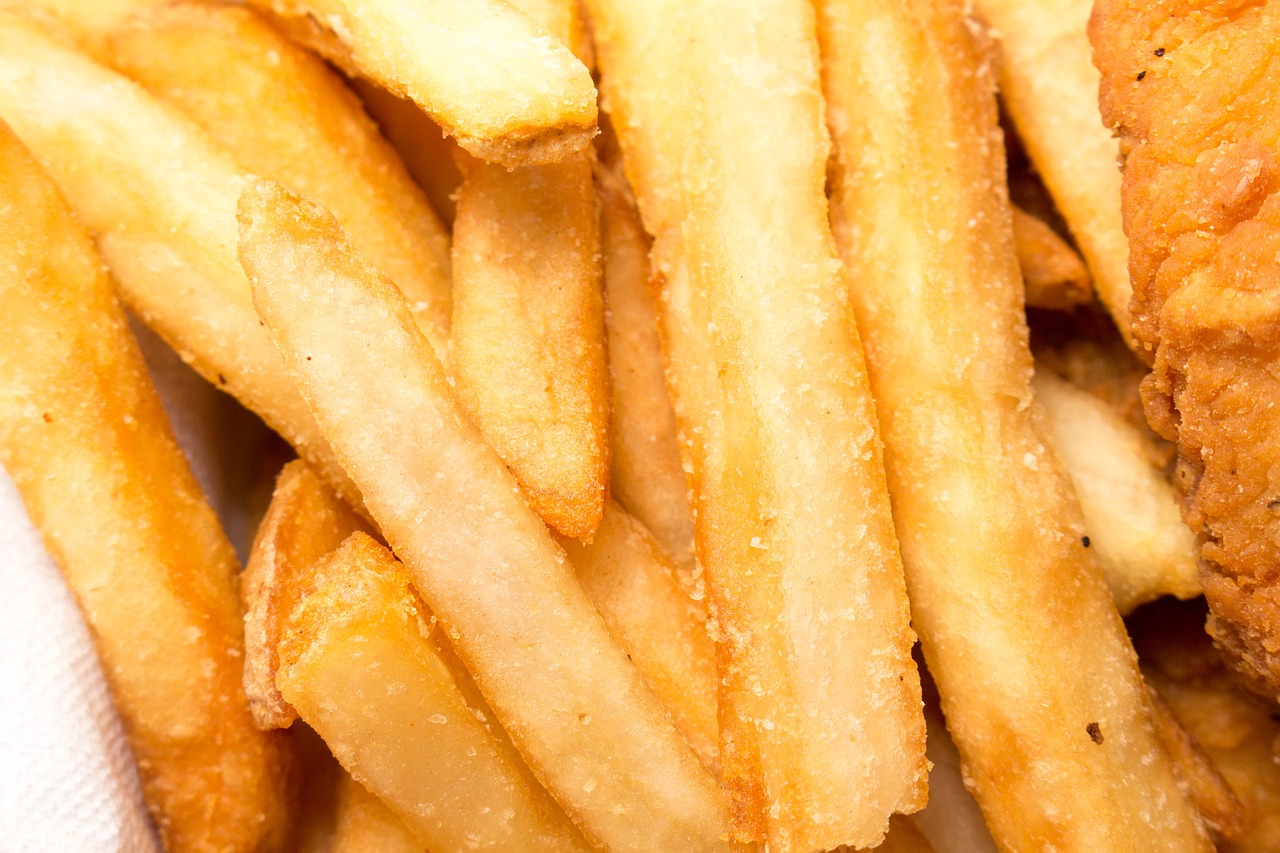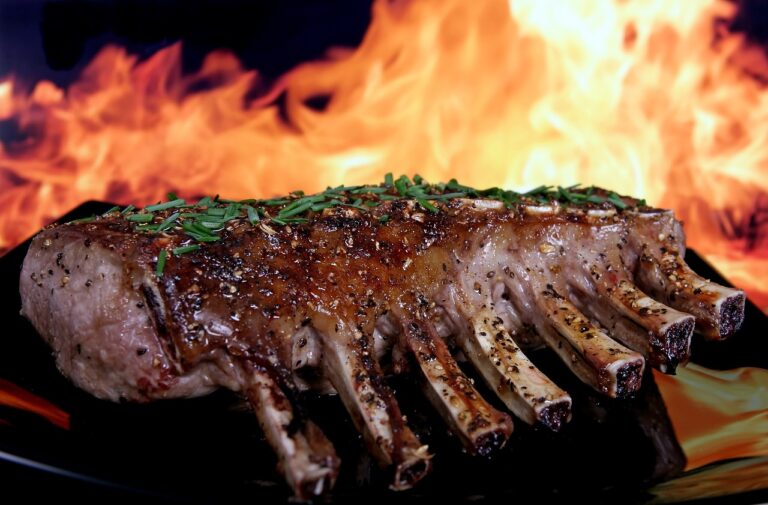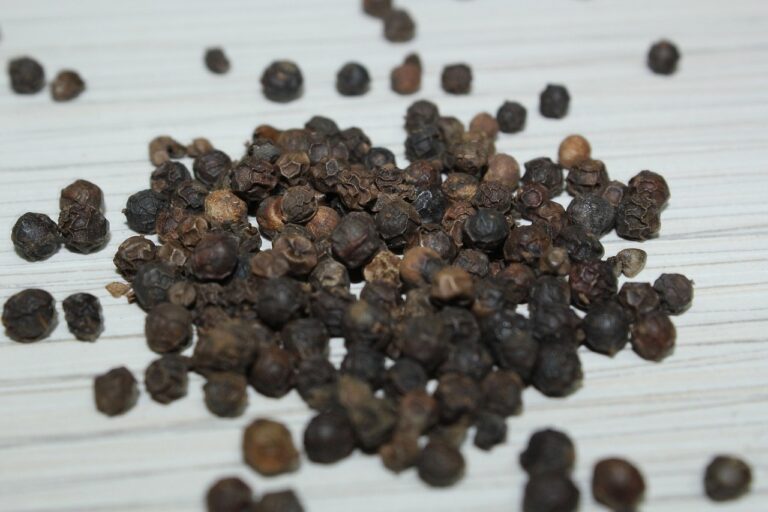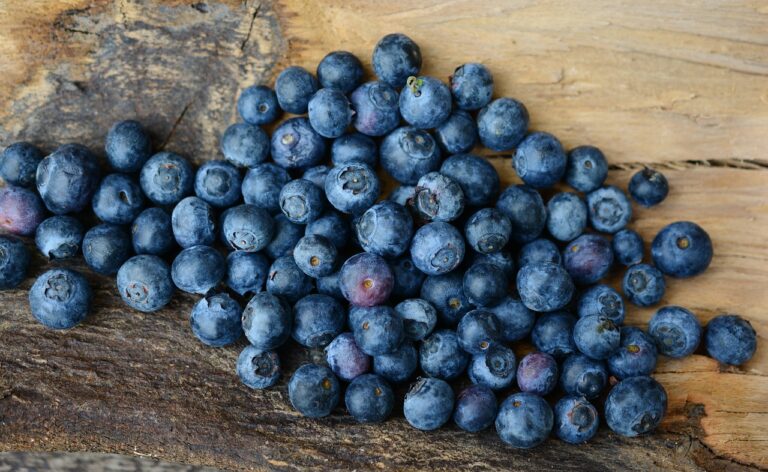10 Reasons Why You Are Craving Salty Foods

Salt is a fundamental mineral our body requires to function properly. While it’s an essential nutrient, many of us often find ourselves reaching for that bag of chips or salted nuts a bit too often. Craving salty foods isn’t just about a taste preference; there’s often more to it than meets the eye. In this article, we’ll explore ten reasons why people might crave salty foods.
Why Am I Craving Salty Foods?
1. Electrolyte Imbalance
Our body maintains a delicate balance of electrolytes, primarily sodium, potassium, and chloride, to function properly. When there’s a disruption in this balance, the body may crave salty foods to compensate.
Sometimes, after intense exercise or sweating, our bodies lose sodium, leading to an electrolyte imbalance. Consuming salty foods or drinks can help restore this balance. Athletes, for example, might crave salt after a strenuous workout or competition.
2. Dehydration
Dehydration can sometimes mask itself as hunger or specific food cravings. When our bodies are dehydrated, they might signal for salty foods.
Salty foods can promote thirst, which might be the body’s indirect way of prompting us to drink more water. Furthermore, salt helps retain water in the body, which might be another reason behind the craving when dehydrated.
3. Stress and Hormones
Stress can have a profound effect on our eating habits. When under stress, our adrenal glands release cortisol, a hormone linked with increased appetite.
Craving salty foods can be a result of these hormonal fluctuations. Consuming salt can also promote the release of serotonin, a feel-good neurotransmitter, providing temporary relief from stress.
4. Poor Diet
A diet low in essential minerals might lead the body to crave certain foods. If someone isn’t consuming enough sodium through natural sources, they might crave salty processed foods.
People on restrictive diets or those who consume highly processed foods might experience salt cravings. Ensuring a balanced intake of minerals can help curb these cravings.
5. Genetic Predisposition
Some people might be genetically predisposed to prefer salty foods. Our genes can influence our taste buds and our response to certain tastes, including salt.
Studies have shown that certain individuals have a heightened taste perception for salt, which might make them more prone to salt cravings. Understanding one’s genetic makeup can shed light on dietary preferences.
6. Medications and Medical Conditions
Certain medications can lead to increased salt cravings. Diuretics, for example, cause the body to expel more sodium through urine.
Medical conditions such as Addison’s disease or Bartter syndrome can also lead to salt cravings. It’s crucial to consult a doctor if you suspect your salt cravings are a result of a medical condition or medication.
7. Lack of Minerals
Besides sodium, our bodies need various minerals like zinc, potassium, and calcium. A deficiency in one can sometimes manifest as a craving for salty foods.
Even though the body might not necessarily be craving sodium, it seeks out salty foods in hopes of getting the other minerals it needs. Balancing your diet with nutrient-rich foods can help prevent such cravings.
8. Menstrual Cycle
Hormonal fluctuations during a menstrual cycle can lead to a range of cravings, including salty foods. The body’s sodium balance can be affected during this time.
Many women experience cravings for salty snacks in the days leading up to their period. This is a natural response and usually subsides as the cycle progresses.
9. Taste Evolution
Our taste buds evolve over time, influenced by our dietary choices. Regularly consuming salty foods can condition our taste buds to prefer or even expect a saltier flavor.
Reducing salt intake gradually can help recalibrate our taste buds. Over time, one might find themselves satisfied with less salt in their food.
10. Boredom or Habit
Sometimes, the craving for salty foods isn’t physiological but psychological. Boredom eating is a real phenomenon, and salty snacks are often an easy go-to.
Being mindful of our eating habits and recognizing patterns can help. If boredom is the trigger, finding alternative activities or distractions can reduce these cravings.
Crave Food Salted Toffee Pretzels
Salted toffee pretzels combine the irresistible blend of sweetness from the toffee and the savory crunch of pretzels, making them a sought-after snack for those who enjoy complex flavors. The contrast between the saltiness and the sweetness appeals to our taste buds, providing a satisfying sensory experience. This combination can also trigger the release of dopamine, the “feel-good” neurotransmitter, enhancing our mood and making us crave them more.
Moreover, the crunchy texture of the pretzels satisfies our innate desire for foods that offer a tactile sensation, making them even more appealing. The convenience of this snack, being easy to eat on the go, adds to its popularity. Lastly, the unique flavor profile of salted toffee pretzels sets them apart from other snacks, making them a novel treat for many.
Crave Salty Foods After Running
Craving salty foods after running is a natural response to the body’s need to replenish electrolytes, such as sodium, lost through sweat during exercise. Sodium plays a crucial role in maintaining fluid balance and blood pressure, and its depletion can lead to feelings of weakness and dehydration. Runners, especially those covering long distances, may find themselves craving salty foods as a way to quickly restore the sodium balance in their bodies.
Additionally, the physical exertion from running increases the body’s overall energy demands, making high-sodium snacks an attractive option for immediate replenishment. The psychological aspect of rewarding oneself with tasty, savory foods after a challenging workout can also contribute to these cravings. Lastly, the body’s innate mechanisms to maintain homeostasis drive the desire for salty foods, ensuring that essential nutrients are balanced after strenuous activities.
Craving Salty Crunchy Foods
Craving salty crunchy foods is often a response to stress or boredom, as the act of crunching can be physically satisfying and psychologically comforting. The combination of salt and texture stimulates the taste buds and brain, providing a pleasurable sensory experience. These cravings can also be linked to the body’s natural instincts for varied textures and flavors, which help ensure a diverse intake of foods.
Eating salty crunchy foods can release dopamine, a neurotransmitter associated with pleasure and reward, which reinforces the craving. The convenience and widespread availability of salty crunchy snacks make them a go-to option for many seeking a quick and satisfying treat. Furthermore, the body may be signaling a need for more sodium or other minerals found in salty snacks, especially if one’s diet is lacking in these nutrients.
Craving Salty Food During Pregnancy
During pregnancy, hormonal changes can significantly alter taste preferences and intensify cravings for salty foods. These cravings may be the body’s way of ensuring an adequate intake of essential minerals, such as sodium, which plays a vital role in fluid balance and blood volume necessary for supporting the growing fetus. Additionally, increased blood volume and changes in blood pressure during pregnancy can trigger cravings for salty foods as a way to maintain electrolyte balance.
Pregnant women may also experience heightened senses of smell and taste, making savory foods more appealing. The body’s increased energy and nutrient demands during pregnancy can lead to specific cravings, including for salty foods, as a way to quickly satisfy these needs. Lastly, craving salty foods can be a psychological response to stress or changes in mood, common during pregnancy, where such foods serve as a comfort or stress relief.
Craving Salty Foods After Workout
After a workout, the body craves salty foods as a natural response to the loss of sodium and other electrolytes through sweat. Replenishing these lost nutrients is essential for recovery and to prevent dehydration and muscle cramps. The physical exertion from exercise also increases the body’s metabolic rate, leading to a spike in hunger and specific cravings, including for salty and savory foods.
Consuming salty foods post-workout can quickly restore the body’s electrolyte balance, promoting hydration and aiding in the recovery process. The satisfying nature of salty foods can also serve as a psychological reward for completing a strenuous exercise session. Furthermore, workouts that involve intense or long-duration activities particularly heighten the need for sodium replenishment, making salty snacks an attractive option for immediate post-exercise nutrition.
Craving Salty Foods At Night
Craving salty foods at night can be attributed to several factors, including boredom, stress, or habit. Nighttime is often a period of relaxation and unwinding, during which people might turn to food for comfort or entertainment. Salty foods, with their intense flavors and gratifying textures, can provide a sense of satisfaction and pleasure that people seek in the evening.
Additionally, if one’s diet throughout the day is lacking in essential nutrients, including sodium, the body might signal a need for these through cravings. Hormonal fluctuations that affect appetite and stress levels can also be more pronounced at night, driving cravings for high-sodium foods. Moreover, the habit of snacking while watching TV or engaging in other nighttime activities can reinforce cravings for salty foods, making them a go-to choice
for many seeking a late-night snack.
Craving Salty Foods During Period
Cravings for salty foods during a period can be linked to hormonal fluctuations associated with the menstrual cycle. Changes in estrogen and progesterone levels can influence appetite and cravings, making salty and savory foods more appealing. Additionally, some women experience fluid retention and bloating during their period, and the body might crave salty foods to balance electrolytes and reduce discomfort.
The loss of blood and minerals during menstruation can also lead to specific cravings, including for salty foods, as the body seeks to replenish these nutrients. Emotional changes and stress associated with PMS can drive comfort eating, with salty foods often serving as a preferred choice for their satisfying and comforting qualities. Lastly, the increase in metabolic rate during this time can raise hunger levels, making salty snacks an appealing option to quickly satisfy cravings.
Craving Salty Foods During Pregnancy
Cravings for salty foods during pregnancy can be attributed to hormonal changes that alter taste and smell sensitivities, making savory flavors particularly appealing. These cravings may also indicate the body’s increased need for sodium and other minerals to support the fluid balance and blood volume expansion necessary for the growing fetus. Pregnant women often experience enhanced senses of taste and smell, which can intensify the desire for specific food types, including salty ones.
Moreover, the craving for salty foods can be a physiological attempt to obtain essential nutrients required in greater amounts during pregnancy. Emotional factors and stress relief associated with eating comforting foods like salty snacks can also play a role in these cravings. Lastly, as the body undergoes significant changes, cravings for salty foods may reflect the body’s effort to satisfy both nutritional needs and changing taste preferences.
Craving Salty Foods In The Morning
Craving salty foods in the morning can be a sign of dehydration, as the body loses water overnight through breathing and perspiration, leading to a natural desire for foods that can help replenish sodium levels. These cravings might also reflect the body’s need for energy and nutrients to kickstart the day, with salty foods often providing a quick and satisfying source of fuel. Additionally, if dinner or the last meal was early or light, the body might crave more substantial, savory foods in the morning to satiate hunger.
Consuming salty foods can also stimulate alertness and help people feel more awake, making them a preferred choice for starting the day. Hormonal fluctuations that influence appetite and stress levels upon waking can contribute to a desire for salty foods. Furthermore, habitual dietary patterns, such as regularly consuming salty breakfast items, can reinforce these cravings over time.
Craving Salty Foods When Sick
Craving salty foods when sick, especially with conditions like colds or flu, can be the body’s way of trying to restore electrolyte and fluid balance, particularly if there’s been a loss of fluids through fever or sweating. Salty foods can help retain water and improve hydration, which is crucial for recovery. Additionally, when the body is fighting an infection, there may be an increased need for energy and nutrients, including sodium, which salty foods can provide.
Sickness can also affect taste and smell, making stronger-flavored foods like those that are salty more appealing, as they can be more easily tasted. The comfort associated with certain salty foods can have a soothing effect, offering psychological comfort when feeling unwell. Moreover, the immune response can alter dietary preferences, leading to specific cravings that might help the body cope with the illness.
Craving Salty Greasy Foods
Craving salty greasy foods can stem from a combination of physiological and psychological factors. Physiologically, the body may crave these foods for quick energy and satisfaction, as fat and salt together stimulate the brain’s reward centers, leading to feelings of pleasure. This craving can also indicate a deficiency in certain nutrients, as greasy foods often contain high levels of sodium and fat, which the body may seek out when it’s lacking.
Psychologically, stress and emotional eating can lead to cravings for salty greasy foods, as these are often associated with comfort and indulgence. The texture and flavor of greasy foods can provide a sensory experience that distracts from stress or negative emotions. Additionally, habitual eating patterns and cultural influences can reinforce cravings for these types of foods, making them a go-to option for satisfying hunger or cravings.
Craving Salty Sour Foods
Craving salty sour foods can indicate a desire for a stimulating sensory experience, as the combination of saltiness and acidity can activate different taste receptors, offering a unique and satisfying taste. These cravings may also reflect the body’s need for variety in the diet, with the sharpness of sour flavors complementing the savory taste of salt to enhance overall meal enjoyment. Additionally, craving salty sour foods can be linked to a need for certain minerals or electrolytes, such as sodium and potassium, which are often present in these foods.
The desire for salty sour foods can also be driven by psychological factors, such as seeking comfort or a mood boost from foods that offer a strong and distinctive flavor profile. Cultural and dietary habits play a role, as individuals may develop a preference for salty sour foods based on their upbringing or exposure to certain cuisines. Furthermore, the craving for these foods can be a response to boredom or stress, serving as a way to introduce excitement and variety into one’s diet.
Craving Salty Spicy Food
Craving salty spicy food can be attributed to the desire for intense flavors that stimulate the taste buds and provide a satisfying sensory experience. The combination of salt and spice can increase saliva production and enhance flavors, making food more enjoyable. Additionally, spicy foods can trigger the release of endorphins, the body’s natural painkillers, which produce a feeling of well-being and can lead to a craving for the euphoric effect associated with spicy food consumption.
Eating spicy and salty foods can also be a cultural preference or habit, as people from regions with hotter climates often have diets rich in these flavors. The body might crave these foods for their perceived health benefits, such as improved digestion and metabolism. Moreover, the craving for salty spicy food can reflect a need for variety and excitement in the diet, offering a break from more bland or routine meals.
Craving Salty Sweet Foods
Craving salty sweet foods is a common phenomenon that stems from the brain’s positive response to the combination of sugar and salt, which can enhance flavor and satisfaction. This combination triggers the release of dopamine, a neurotransmitter associated with pleasure and reward, making these foods particularly addictive. The craving for salty sweet foods can also be a sign of fluctuating blood sugar levels, with the body seeking a quick source of energy and the stabilizing effect of salt.
The contrast between salty and sweet flavors satisfies a broad range of taste preferences, appealing to a wide audience. Emotional eating and seeking comfort through food can also lead to cravings for salty sweet combinations, as they provide a sense of indulgence and pleasure. Additionally, cultural influences and exposure to foods that blend these tastes can cultivate a preference for salty sweet snacks and dishes, reinforcing the craving.
Craving Salty Tangy Foods
Craving salty tangy foods often reflects a desire for a vivid and refreshing taste experience, as the tanginess adds a zesty burst that can enhance the flavor profile of a dish. The combination of salt and acidity in tangy foods can stimulate the taste buds and salivary glands, improving the overall eating experience. These cravings might also indicate the body’s need for a variety of sensory experiences in food, which can be satisfied by the unique combination of salty and tangy flavors.
The craving for salty tangy foods can be a physiological response to dehydration or an imbalance in electrolytes, as these flavors often encourage increased fluid intake. Psychologically, the desire for tangy and salty foods can be linked to mood enhancement, as the bright flavors can evoke a sense of refreshment and vitality. Additionally, cultural and dietary habits influence cravings, as individuals who are exposed to or prefer cuisines that incorporate these flavors might experience cravings more frequently.
How To Stop Craving For Salty Food
To stop craving for salty food, it’s essential to understand the underlying reasons for the cravings, which can include dehydration, mineral deficiencies, or simply habit. Increasing water intake can help manage dehydration-related cravings, while ensuring a balanced diet can address potential nutritional gaps. Gradually reducing salt intake can also recalibrate the taste buds to be less dependent on high-sodium foods for flavor.
Incorporating a variety of flavors and spices into meals can satisfy the need for tasty food without relying on salt. Managing stress and emotional triggers that lead to salty food cravings is crucial, as emotional eating can drive these cravings. Finally, planning meals and snacks ahead of time can prevent impulsive eating of salty foods, helping to curb the cravings over time.
Sudden Craving For Salty Foods
A sudden craving for salty foods can be a signal from the body indicating dehydration or an imbalance in electrolytes, particularly after exercise or in hot weather. These cravings can also stem from a diet lacking in minerals, prompting the body to seek out sodium-rich foods. Hormonal fluctuations, especially in women during menstrual cycles or pregnancy, can intensify cravings for salty foods as the body’s needs change.
Stress and boredom can trigger cravings for comfort foods, often high in salt, as a way to cope with emotional distress. Consuming a diet high in processed foods can alter taste preferences, leading to increased cravings for salty foods. Addressing these cravings involves hydrating adequately, ensuring a balanced intake of nutrients, and finding healthier ways to satisfy the craving for salt, such as using herbs and spices for flavor.
Conclusion
Craving salty foods can arise from a myriad of reasons, from physiological needs to psychological triggers. Recognizing the root cause can help in addressing these cravings effectively. Whether it’s balancing our diet, staying hydrated, or managing stress, being in tune with our bodies can lead to healthier choices and overall well-being.






